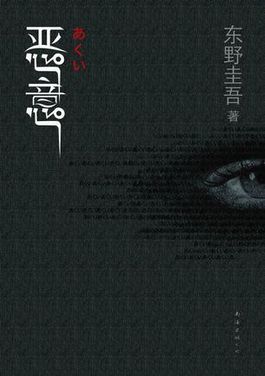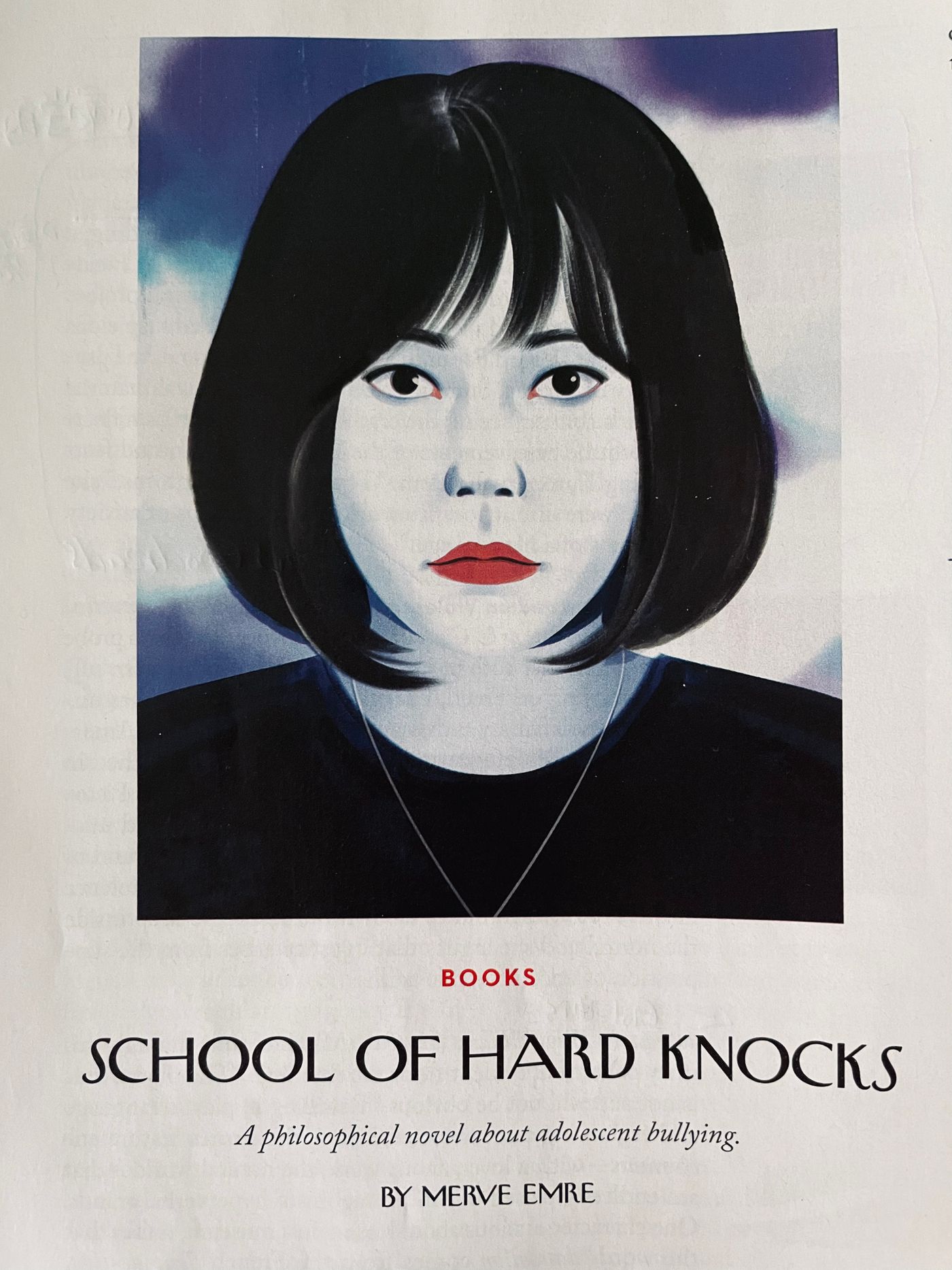Book Review•Storybook|Paradise by Mieko Kawakami and Malice by Keigo Higashino
[Written in front of the words: Spring is blooming, "Character Binding" magazine has launched the second issue of solicitation, I hope to see your modern poetry, the Chinese characters in the poems have removed the word "女" or the word "女", what exactly is such a word? What kind of picture can you show? Contributions are welcome. 10,000 LikeCoin bonuses are waiting for you! 】
At the beginning of the year, the word "malicious" was smashed into our minds with the annual "Spring Festival". The "going home" that was constantly praised and the "reunion" that was constantly preached, overnight, the feelings became "malicious". A person who went home, his intentions turned out to be explained by the relevant departments. So, overnight, it seems that the word "malicious" can be applied to everything. Going home maliciously, eating maliciously, tweeting maliciously, reviewing books maliciously. However, the real villains don't seem to like to declare their malice to the world, but either say that they are being pushed, or that they are doing it for "you(s)" in a broad sense, or that they want to act for the heavens. From the bachelors who have few women and are forced to have nowhere to vent, to the "poor" Putin who is forced to the edge of the earth and cannot resist, the malice is always on the other side. Who should experience this malice?
If a child grows up in a loving home environment, then the first small society they will experience is school. A good upbringing environment is not a 100% guarantee that children will not be bullied at school. At this time, it may be unavoidable if it is really malicious.
There are too many novels and non-fiction about school violence and bullying in this world, and "Paradise" is another one. Previously, school bullying, sexual assault, domestic violence, etc. were mentioned in Sayaka Murata's book review of "The Planet of the Earth". However, "Paradise" is a little different, adding the perspective of the perpetrator to the story. Most of the books with such plots are seldom written from the perspective of the perpetrator, and are mostly written from the third-person perspective of God or from the perspective of the victim. The bullying victim's dialogue becomes special, even Dostoevsky.
The two bullied kids in "Paradise" briefly became friends. One is "I", a boy "Eyes" with "Lazy Eyes", (crossed eyes, etc. appeared in the text later, it is inferred that the boy's eyes may be a bit opposite but more likely to be strabismus), he thought it was because of his eyes Because of being bullied; one is a girl named "Kojima" who was bullied because she was always dirty (wanted to "get closer" to her poor, divorced father).
When Eyes and Kojima are together, they repeatedly discuss why they are being bullied, and why there are people in the world who take pleasure in hurting others. Kojima said it well, because "'you' are different from them, and their brains don't know how to deal with this difference, so they are very scared, so they bully", not because they feel uncomfortable What does it feel like to be hurt. People who are bullied try repeatedly to understand the perpetrator and try to get the perpetrator to understand the pain they are suffering, which turns out to be almost impossible.
In a conversation between Eyes and one of the bullies, Mieko Kawakami presented a small climax of the work, which is also a small philosophical dimension - Momose, one of the bullies, explained to Eyes that the reason for their bullying was not because His eyes, but simply that he was in the wrong place at the wrong time, and told him that he did not believe in the so-called "do not do to others what you do not want to do to yourself", but put the responsibility on the bully Ling's Eyes is because he didn't fight back when he was bullied. He had many opportunities to fight back, but he didn't seize it. Compared to the detailed description of Eyes and Kojima's bullying, this conversation seems a little airy, although Momose, one of the bullies, made his point clearly - everyone just needs to be for themselves Even if it is the most impulsive part, he also understands that his actions will have consequences, that is, the other party will either suffer silently or resist - it is very "social".
It's hard to say whether I agree with this point of view, and the word "agree" is too simple. At least I think bullies are frank. Tell Eyes frankly that if you choose to resist, they will naturally accept it. People who are still not allowed to resist seem to be one step higher? After all, one of the eloquent, non-prime bullies in "Paradise" is willing to accept the consequences of his actions. The sad thing about bullies, though, is that, aside from their me-centred mindset and victim-blaming attitude, they are utterly useless.
Keigo Higashino's "Malicious" is a murder case. The writer was killed before immigrating to Canada. The case was complicated and confusing. Finally, it turned around and returned to an old classmate. It also revealed a case of bullying and rape in the past student days.

The case is not spoiled, but the appearance of the murderer at the end of the case made people chill. In order to cover up their crimes, the former criminals did not hesitate to arrange various crimes on innocent people, just to prevent people from discovering the unspeakable role that they once played in the school bullying and rape case—the accomplice. The title of Keigo Higashino’s story is very meaningful, because the murderer of the murder is not the criminal who committed the rape, but an accomplice; this seems to involve being an accomplice and being able to look at his past behavior with a tentative perspective , and attempted to cover up, perhaps hence the title "Malicious".
After reading two novels, I always wonder, what exactly is malicious? Why think over and over? Because when I was bullied by my mother again and again, I would always cry and tell her that I was hurt, please stop, but she would always tell me, "Don't think so badly of others!" I don't understand, I really think it's my own fault, why I always think so badly of others, the bad person is me. But if I'm a villain, why do I feel hurt deep inside? Shouldn't it be her who should be hurt? It wasn't until I grew up with a sufficient sense of distance that I gradually understood the principle of speaking and began to ponder, is "malicious" really in me? It was also later that I gradually realized that not all malicious people seem to talk about maliciousness. It is more convenient to push "maliciousness" on the other side, and gradually understand the meaning of "projection".
Having said that, the book review of "The New Yorker" analyzed "Paradise" by Mieko Kawakami with the philosophical wisdom of Nietzsche and others, while I more directly and plainly compared "Paradise" with "Malignity", which also has a background of campus bullying. Connected to write, philosophy is philosophy, what I see is the excavation of different aspects of school bullying in Japanese literature. Here, I borrowed the portrait of Mieko Kawakami's book review of "Paradise" from The New Yorker. It has a Japanese horror atmosphere, as if her vicious eyes can completely change the feeling of her whole body, and she immediately becomes cold and sharp.

Looking through the previous articles, I have also written many book reviews of school bullying and campus tragedies, from "Fang Siqi's First Love Paradise" to "The Death of a Female Middle School Student" , all of which are depressing and resentful. However, these works are still coming one after another, and I will read them one by one, not for anything else, but because the person being bullied will always be in pain, but the person who bullies will never ask, "As you, Will it hurt?", I often feel pain too, in words, pain is the same.
Like my work? Don't forget to support and clap, let me know that you are with me on the road of creation. Keep this enthusiasm together!








- Author
- More